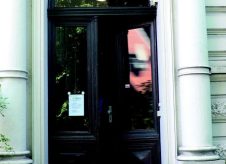Sexual orientation
In Germany, people with different sexual orientations are all welcome and treated equally.
In fact, an anti-discrimination law was put into effect in 2006 which reads, “The aim of the law is to prevent or resolve discrimination on the grounds of race or ethnic origin, sexual orientation, religion or belief, disability, age or gender identity.”
This is important for asylum seekers, because if a serious violation of basic human rights can be shown, a person who was persecuted in their home country for being homosexual might receive asylum in Germany.
In Bremen too, people of different sexual orientations are welcome: All places and offerings are open to all people. In addition, there are specific contact points and counseling centers and meeting places in Bremen to help you with questions about sexuality. This includes, for example, “Das Rat und Tat Zentrum”, an advice and information center.
In this section you will find some of these contact points as well as a few answers to further questions.







